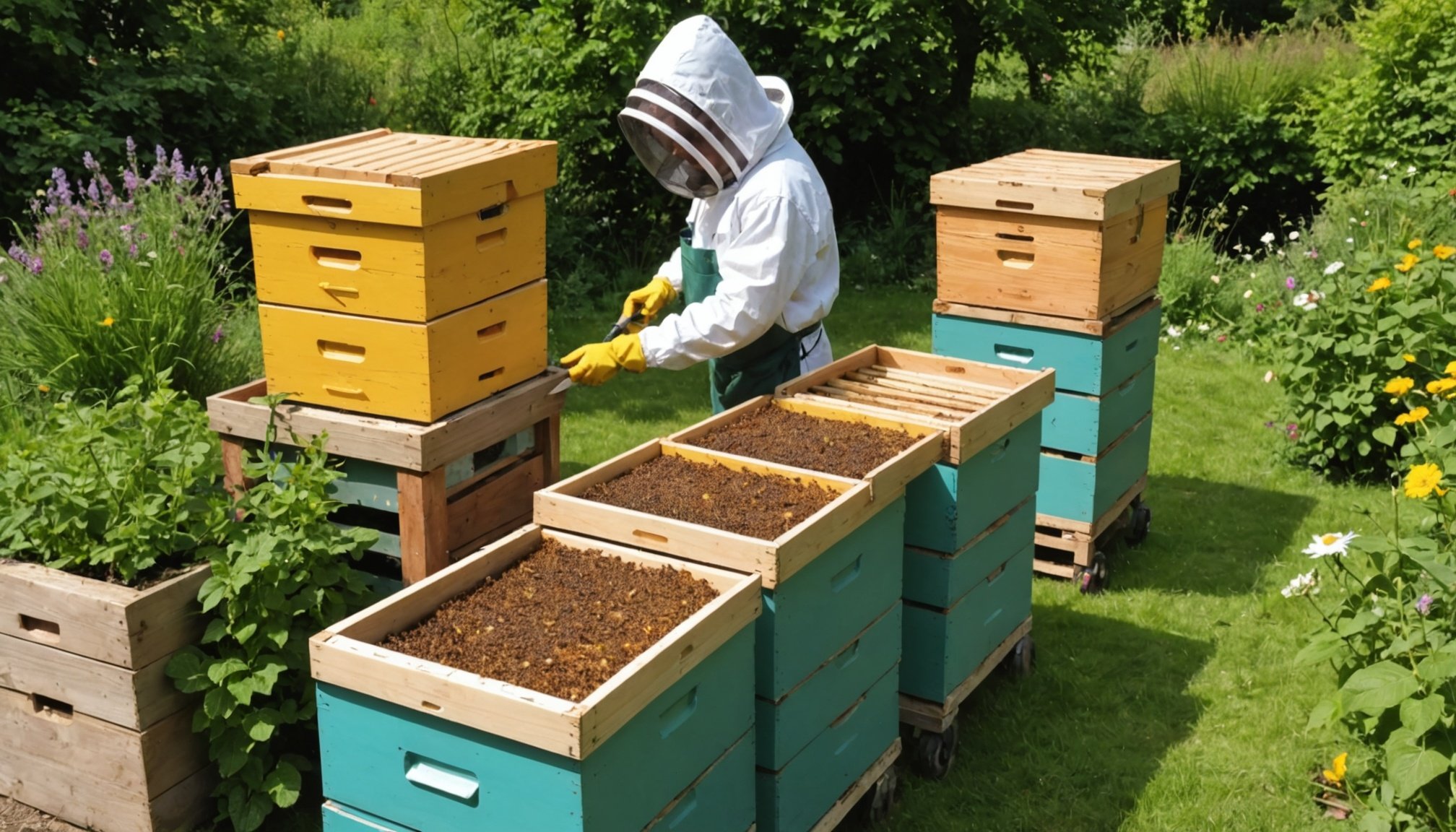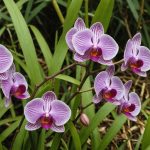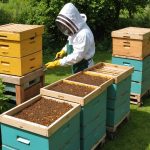Urban beekeeping is becoming increasingly popular, even in bustling cities like London. The benefits of maintaining a bee colony in your garden extend beyond honey production; they promote biodiversity and contribute to environmental health. This guide offers practical steps and insights for aspiring beekeepers. From selecting the right location to understanding local regulations, discover how you can nurture a thriving hive amidst London’s urban landscape and play a role in supporting our essential pollinators.
Understanding Urban Beekeeping in London
Exploring the buzz of city life through beekeeping.
A découvrir également : Is It Safe for Dachshunds to Compete in Dog Sports Without Back Injury Risks?
The Rising Trend of Urban Beekeeping
Urban beekeeping is becoming increasingly popular in London, as more people recognize the benefits of maintaining bee colonies in city environments. The practice involves keeping bees in urban areas, often on rooftops or in community gardens, offering a unique opportunity to connect with nature amidst the hustle and bustle of city life.
Importance of Local Ecology and Bee Behavior
Understanding local ecology is crucial for successful urban beekeeping. Bees play a vital role in pollinating city plants, which supports biodiversity. Knowledge of bee behavior helps in maintaining healthy colonies. Beekeepers must be aware of seasonal changes and local flora to ensure bees have access to adequate resources.
Sujet a lire : Identifying Early Arthritis Symptoms in Senior Cats: A Comprehensive Guide for Pet Owners
Benefits of Beekeeping in Urban Environments
Beekeeping in cities like London offers numerous benefits. It helps boost local biodiversity, provides fresh honey, and fosters community engagement. Urban environments can surprisingly offer abundant nectar sources, thanks to diverse plantings in parks and gardens.
- Boosts biodiversity
- Provides fresh honey
- Fosters community engagement
Incorporating bee colony maintenance into urban settings can transform cityscapes into thriving ecosystems. As more Londoners embrace this practice, the city becomes a haven for bees, ensuring their survival and the health of urban flora.
Legal Considerations for Beekeeping in London
Understanding the legal landscape is essential for urban beekeepers.
Overview of Relevant Legislation
Navigating the beekeeping regulations in London requires awareness of several legal requirements. The London laws mandate that beekeepers adhere to specific guidelines to ensure the safety and well-being of both bees and the public. The Beekeeping Code of Practice outlines the responsibilities of beekeepers, including the need to prevent swarming and maintain healthy colonies.
Registering Your Bee Colony
Registering your bee colony is a crucial step in complying with legal requirements. The National Bee Unit provides a voluntary registration system, helping beekeepers manage their hives effectively. Registration aids in monitoring bee health and controlling diseases. It's recommended to stay informed about any updates to London laws regarding beekeeping.
Health and Safety Guidelines
Ensuring health and safety is a priority in urban beekeeping. Beekeepers must understand the bee diseases and pest control regulations to maintain colony health. Regular inspections and treatments are vital to prevent the spread of pests. Additionally, compliance with local council regulations helps protect public spaces and neighboring properties.
- Bee diseases prevention
- Pest control measures
- Local council compliance
By following these beekeeping regulations, urban beekeepers contribute to a sustainable and safe environment for both bees and city dwellers.
Choosing the Right Bee Species for Urban Environments
Selecting the ideal bees for city life.
Comparing Common Bee Species
When considering bee species for urban beekeeping, it's essential to understand the differences between honeybee varieties. The Western honeybee (Apis mellifera) is a popular choice due to its adaptability and high honey production. However, urban beekeepers might also consider the Bumblebee (Bombus terrestris), known for its effective pollination abilities, though it produces less honey.
Native vs. Non-Native Options
Opting for native bee species can provide ecological benefits, as they are well-suited to local climates and flora. This can lead to more resilient colonies that require less intervention. Non-native species, while sometimes offering unique advantages like higher honey yields, may face challenges adapting to urban environments and could potentially disrupt local ecosystems.
Considerations for Resilient Breeds
Selecting resilient bee breeds is crucial for urban settings, where environmental stressors can be more pronounced. Beekeepers should look for species known for disease resistance and adaptability to varied urban conditions.
- Western honeybee: High honey yield, adaptable
- Bumblebee: Effective pollinator, less honey
- Native species: Better ecological fit
- Resilient breeds: Disease-resistant, adaptable
Choosing the right bee species can significantly impact the success of urban beekeeping, ensuring healthy colonies and thriving city ecosystems.
Essential Equipment for Beekeeping
Equipping yourself for successful urban beekeeping.
Types of Beehives Suitable for Urban Gardens
Selecting the right beehive is paramount for urban beekeeping. Langstroth hives are popular due to their modular design, making them ideal for small spaces. Top-bar hives offer a more natural approach, encouraging bees to build combs at their own pace. For limited spaces, nuc hives are compact and manageable, suitable for beginners.
Necessary Tools for Beekeeping
To maintain a healthy hive, certain beekeeping tools are essential. A smoker helps calm the bees, making hive inspections easier. Hive tools, such as scrapers and lifters, are crucial for manipulating frames and cleaning. A bee brush gently removes bees from frames without harm.
- Smoker: Calms bees
- Hive tools: Frame manipulation
- Bee brush: Gentle bee removal
Safety Gear and Maintenance Supplies
Safety is a priority in beekeeping. Protective gear, including a bee suit, gloves, and a veil, shields beekeepers from stings. Maintenance supplies, like feeders and mite treatments, ensure hive health. For quality beekeeping equipment in London, local suppliers offer reliable options, or consider DIY beekeeping gear for a cost-effective alternative.
Choosing the right equipment ensures a thriving urban beekeeping experience, balancing practicality with bee welfare.
Managing Your Bee Colony
Effective strategies for maintaining healthy hives in urban settings.
Seasonal Management Practices
Seasonal bee colony management is crucial for thriving urban beekeeping. During spring, focus on expanding the hive and preventing swarming. This involves regular inspections and adding space as the colony grows. In summer, monitor for pests and diseases, ensuring adequate food and water. Autumn is the time to prepare for winter by reducing the hive size and ensuring sufficient honey stores. Winter requires minimal disturbance, but regular checks for moisture and ventilation are essential.
Common Challenges and Solutions
Urban beekeepers often face challenges such as pest infestations, unpredictable weather, and limited forage. To address these, implement a beekeeping maintenance routine, including regular hive inspections and monitoring for signs of stress or disease. Use integrated pest management strategies to minimize chemical use. Planting diverse, bee-friendly flora can help provide consistent forage throughout the year.
Importance of Regular Inspections
Regular hive care and inspections are vital for maintaining colony health. Inspections allow for early detection of issues such as queen problems, disease, or insufficient resources. Monitoring the hive's internal environment, including temperature and humidity, helps prevent conditions that could harm the bees.
- Spring: Prevent swarming, expand hive
- Summer: Monitor pests, ensure resources
- Autumn: Prepare for winter
- Winter: Check moisture, ventilation
By adhering to these practices, urban beekeepers can ensure robust and productive colonies.
Resources and Community Support for Urban Beekeepers
Discovering the support network for beekeepers in London.
Local Beekeeping Associations and Clubs
Connecting with local beekeeping associations and clubs in London is invaluable for urban beekeepers. These groups offer a wealth of beekeeping resources, including advice on managing hives and navigating city-specific challenges. The London Beekeeping Community provides a platform for sharing experiences and best practices. Engaging with these associations can enhance your beekeeping skills and foster a sense of community.
Online Resources and Forums
Online platforms are rich sources of educational materials for urban beekeepers. Forums dedicated to the London Beekeeping Community allow for the exchange of ideas and solutions to common challenges. These forums are an excellent way to access beekeeping resources and connect with fellow enthusiasts. Participating in these virtual communities can keep you informed about the latest trends and practices.
Workshops and Training Opportunities
Participating in workshops and training sessions is crucial for continuous learning. Many organizations offer educational materials and practical training, equipping beekeepers with the skills needed for successful hive management. Workshops provide hands-on experience and are often led by experts in the London Beekeeping Community.
- Connect with urban beekeepers
- Recommended literature
- Online courses
By utilizing these beekeeping resources, urban beekeepers can expand their knowledge and improve their practices, ensuring thriving bee colonies in city environments.










